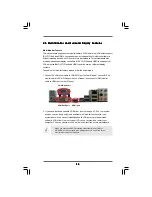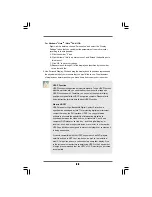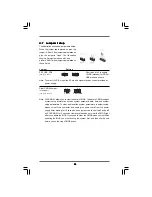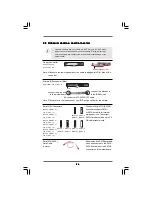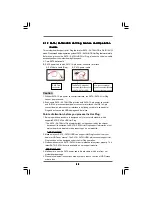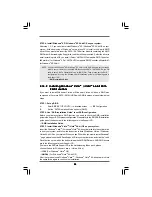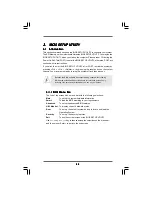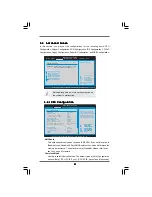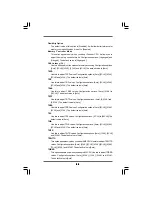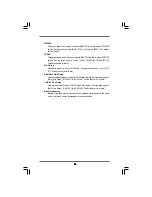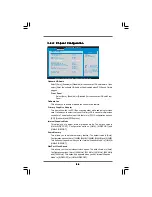
3 1
3 1
3 1
3 1
3 1
2.11 Hot Plug and Hot Swap F
2.11 Hot Plug and Hot Swap F
2.11 Hot Plug and Hot Swap F
2.11 Hot Plug and Hot Swap F
2.11 Hot Plug and Hot Swap Functions for SA
unctions for SA
unctions for SA
unctions for SA
unctions for SATTTTTA / SA
A / SA
A / SA
A / SA
A / SATTTTTAII
AII
AII
AII
AII
HDDs
HDDs
HDDs
HDDs
HDDs
This motherboard supports Hot Plug and Hot Swap functions for SATA / SATAII Devices
in RAID / AHCI mode. AMD SB7
1
0 south bridge chipset provides hardware support for
Advanced Host controller Interface (AHCI), a new programming interface for SATA host
controllers developed thru a joint industry effort. AHCI also provides usability enhancements
such as Hot Plug.
NOTE
What is Hot Plug Function?
If the SATA / SATAII HDDs are NOT set for RAID configuration, it is called
“Hot Plug” for the action to insert and remove the SATA / SATAII HDDs
while the system is still power-on and in working condition.
However, please note that it cannot perform Hot Plug if the OS has been
installed into the SATA / SATAII HDD.
What is Hot Swap Function?
If SATA / SATAII HDDs are built as RAID 1 then it is called “Hot Swap” for
the action to insert and remove the SATA / SATAII HDDs while the system
is still power-on and in working condition.
2.10
2.10
2.10
2.10
2.10 Serial A
Serial A
Serial A
Serial A
Serial ATTTTTA (SA
A (SA
A (SA
A (SA
A (SATTTTTA) / Serial A
A) / Serial A
A) / Serial A
A) / Serial A
A) / Serial ATTTTTAII (SA
AII (SA
AII (SA
AII (SA
AII (SATTTTTAII) Hard Disks
AII) Hard Disks
AII) Hard Disks
AII) Hard Disks
AII) Hard Disks
Installation
Installation
Installation
Installation
Installation
This motherboard adopts AMD SB7
1
0 south bridge chipset that supports Serial ATA
(SATA) / Serial ATAII (SATAII) hard disks and RAID (RAID 0, RAID 1, RAID 10 and
JBOD) functions. You may install SATA / SATAII hard disks on this motherboard for
internal storage devices. This section will guide you to install the SATA / SATAII hard
disks.
STEP 1: Install the SATA / SATAII hard disks into the drive bays of your chassis.
STEP 2: Connect the SATA power cable to the SATA / SATAII hard disk.
STEP 3: Connect one end of the SATA data cable to the motherboard’s SATAII
connector.
STEP 4: Connect the other end of the SATA data cable to the SATA / SATAII hard
disk.
If you plan to use RAID 0 or RAID 1 function, you need to install at least 2
SATA / SATAII hard disks. If you plan to use RAID 10 function, you need to
install 4 SATA / SATAII hard disks.




